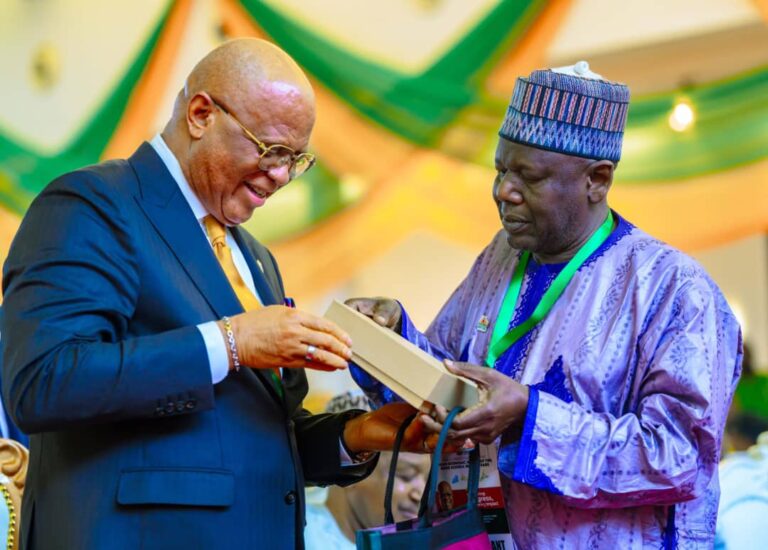By Peter Omopo – Uyo | August 8, 2025
The Nigerian Governors’ Forum (NGF) has named Governor Umo Eno of Akwa Ibom State as its Governor of the Year 2025, citing his exceptional leadership, transparency, and achievements under the ARISE Agenda.
The award was presented on Thursday during the public unveiling of the Socio-Economic Impact Assessment of the ARISE Agenda in Two Years, held at the Banquet Hall of the Akwa Ibom Government House in Uyo.
Representing the NGF Director-General, Alhaji Abdullateef Shittu, Professor Abba Gambo delivered the Forum’s commendation, praising Eno’s governance style and highlighting Akwa Ibom’s top ranking in state-by-state performance assessments, particularly in fiscal prudence, infrastructure delivery, and governance.
“In a state-by-state comparative analysis, Akwa Ibom came out top,” Gambo announced. “It is therefore with great pleasure that the Nigerian Governors’ Forum presents this award to His Excellency, Pastor Umo Eno, as the Governor of the Year 2025.”
The NGF lauded Governor Eno for successfully executing a wide range of completed and ongoing projects across various sectors without relying on bank loans or external borrowing—an uncommon accomplishment amid Nigeria’s current economic challenges.
In his response, Governor Eno dedicated the award to the people of Akwa Ibom, affirming his administration’s commitment to people-centered and transparent governance.
“This recognition is both humbling and encouraging,” he said. “We will continue to use the resources of Akwa Ibom State to work for Akwa Ibom people—building infrastructure, empowering communities, and shaping a more prosperous future.”
He further credited the state’s progress to disciplined financial management, institutional reforms, and the focused execution of the ARISE Agenda.
The event drew participation from federal government representatives, ministers, economic analysts, development partners, civil society stakeholders, and members of the press. Attendees commended the Akwa Ibom government for opening its records to public scrutiny and independent evaluation, setting a precedent for accountability in governance.

